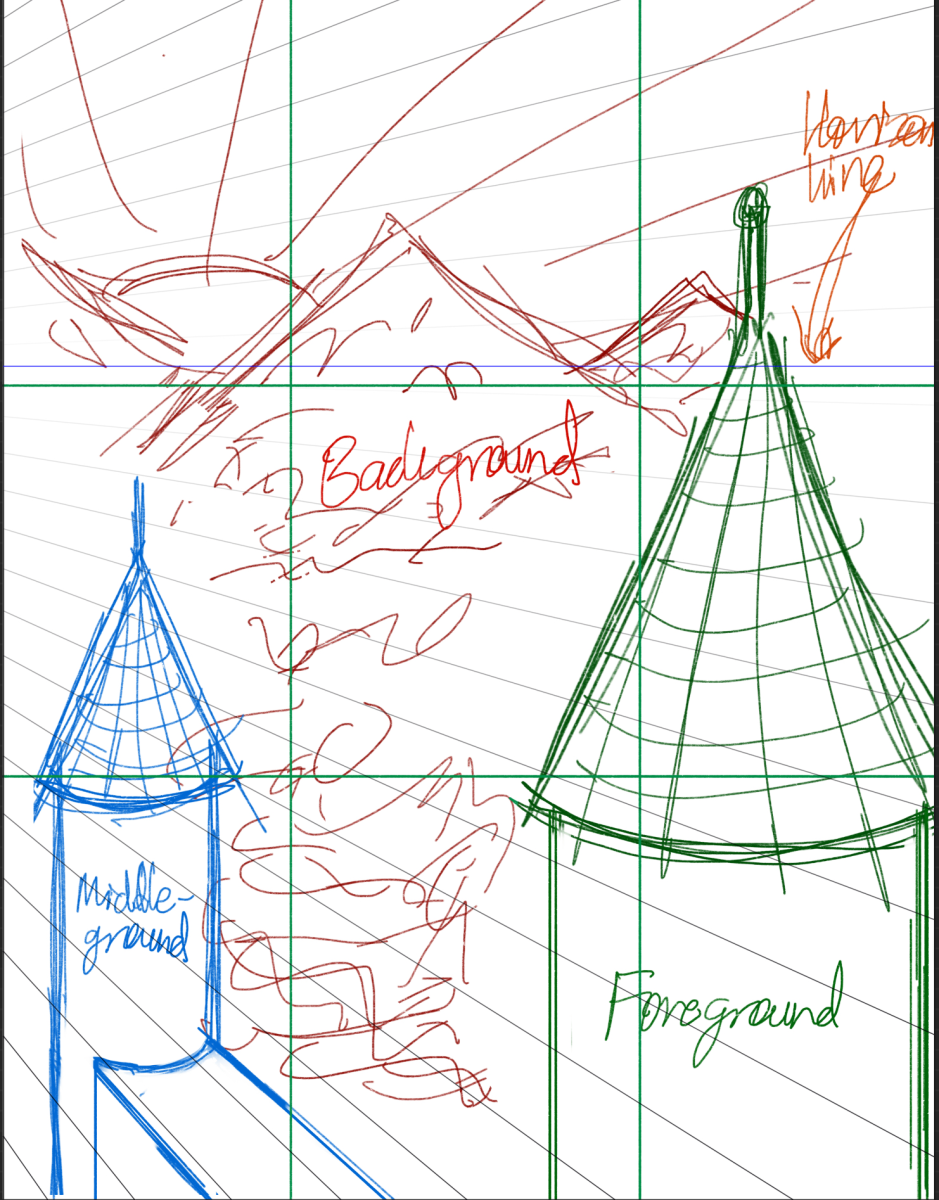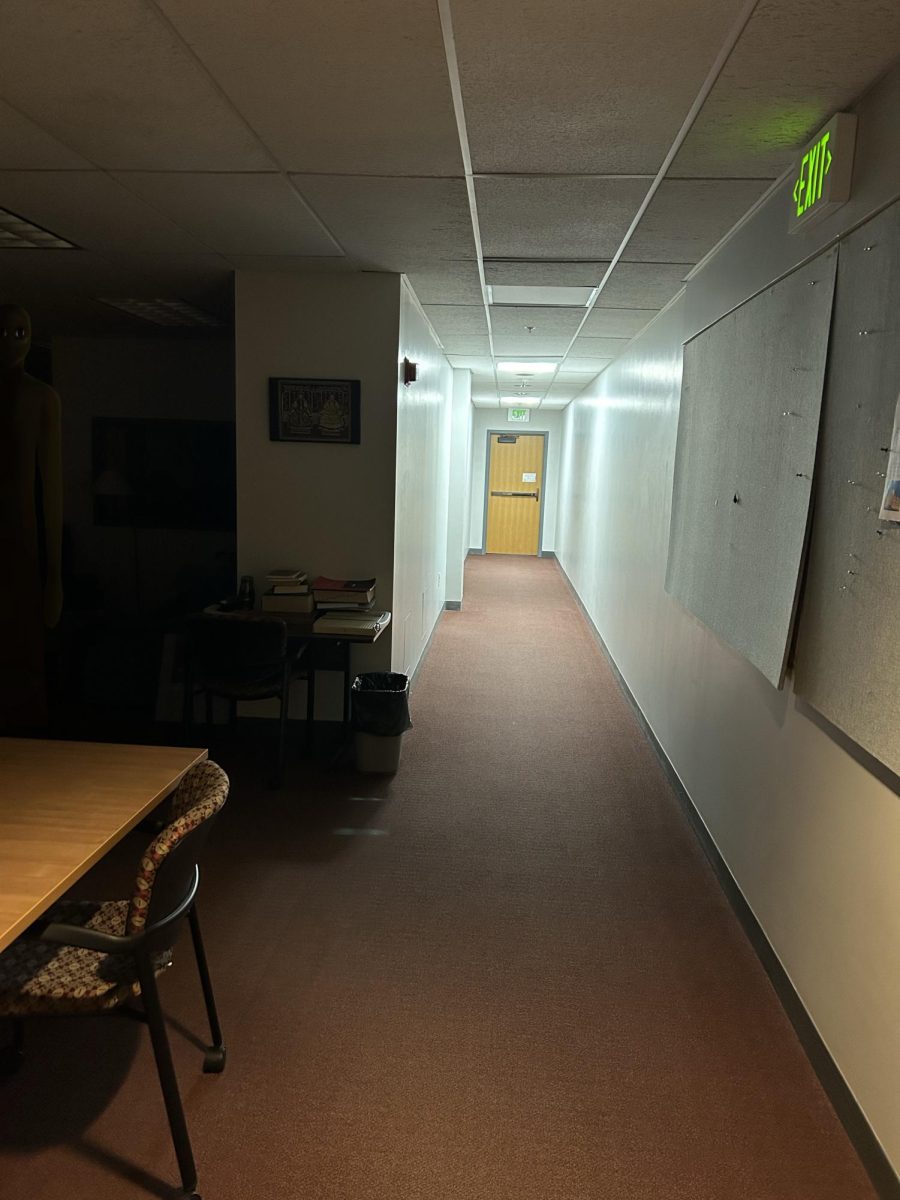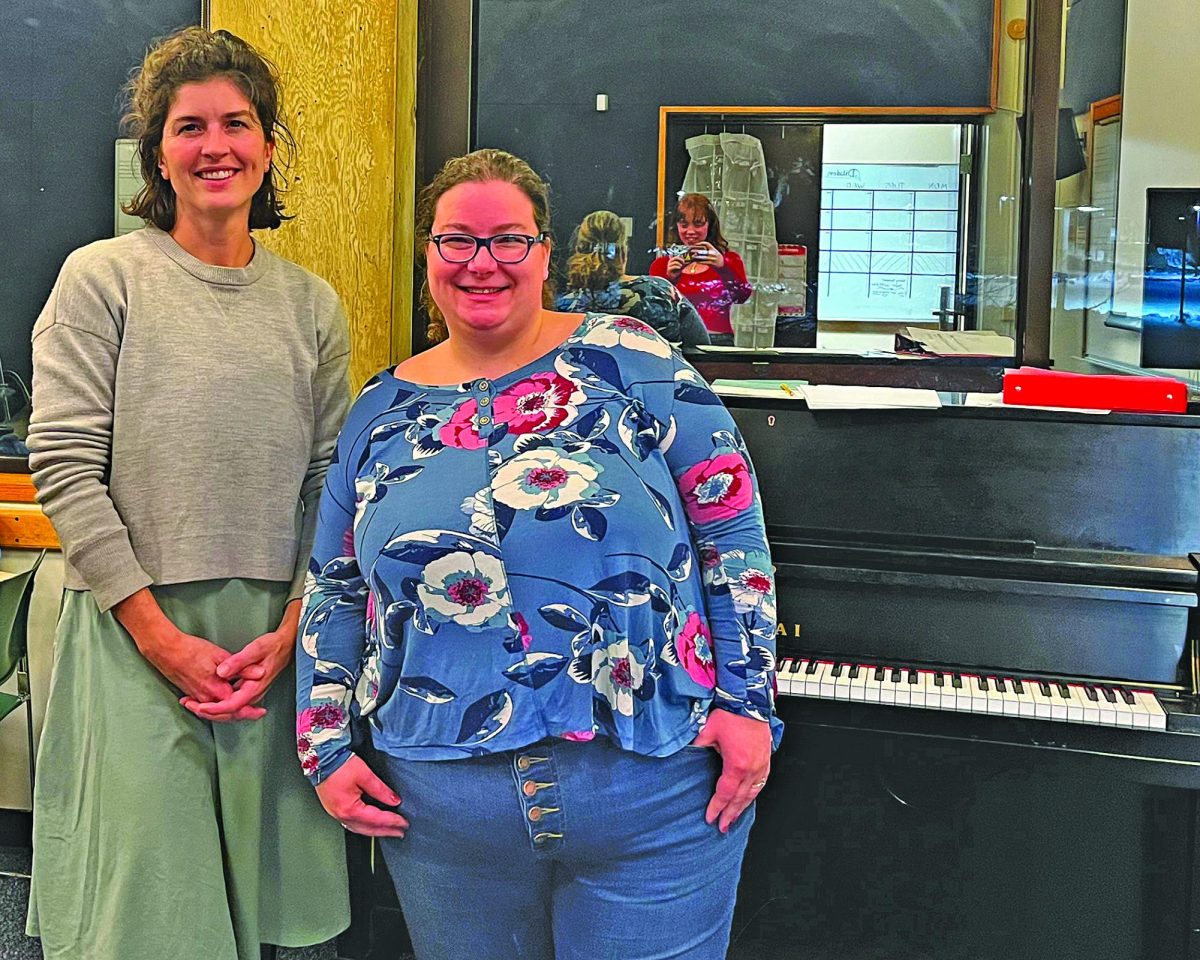It is impossible to know exactly what went through the minds of Johnson State College’s students as they went to see the band Le Vent Du Nord on Dec. 2, but they may have been expecting something different than what they received. Sometimes, there is a prejudice about foreign music that says it is strange, or overly serious, or totally inscrutable. Le Vent Du Nord is none of those things.
This four-man group based in Quebec, whose name translates to The North Wind, has a simple and clear motive– to play music and have fun doing it. Looking at any of them, it was apparent that they were enjoying themselves. At one end of the spectrum, Nicolas Boulerice had an impossibly wide grin on his face while seated at the piano– on the other, accordion artist Réjean Brunet remained relatively quiet, but still seemed relaxed, especially when playing the mouth harp. The mouth harp is, after all, a lighthearted instrument.
The band bases their style off of traditional Celtic folk ballads, which are often written for dancing along with, and modernizes the tradition in ways that are noticeable but not drastic. Their song Le Diable Et Le Fermier is one such example, adding an electric guitar and a heavy marching beat to the background of a folk tale about a farmer fooled by the Devil. They compare the folk tale to the aggressive shale oil fracking in Canada, so the modernization makes sense in context.
Despite being a protest song, Le Diable Et Le Fermier is not preachy, and is in fact quite catchy. While it may have a somber subject matter in theory, Le Vent Du Nord had the whole audience stomping along to Olivier Demer’s combination of guitar and shoe-tapping percussion. It is worth mentioning that it was not necessary for the audience to understand the lyrics, which were all in French excluding one or two loanwords. Even with the language barrier, the human voice is an instrument capable of inspiring a wide range of emotions, and Le Vent Du Nord hit many of them without a word of English.
This is not to say that the band members did not speak English. While French is their native language, they all have impeccable English—their guitarist and primary vocalist, Simon Beaudry, has almost no French accent when speaking English. In between songs, they would explain the origins of their songs to the audience to share the folk tales they based their music on. One song of theirs, they explained, is about a man who wants to marry a woman, who will only join him if he gives her the literal heart of his own mother. In a completely deadpan voice, Beaudry added, “You may find this surprising, but in Quebec, that’s illegal.”
One of the other things that made Le Vent Du Nord so entertaining is that they were utterly hilarious in a distinctly subtle way. While they did not exactly tell jokes with punch lines, the way they discussed the often not-funny subject matter of their music made light of the whole show. When they explained the Canadian patriotism behind their new song Lettre À Durham, the musicians said it was about the Rebellion of 1837-1839, “when we were young.” When they explained their instruments, Boulerice took the time to elaborate on exactly what a hurdy-gurdy was– apparently being somewhere between a piano, a guitar, and a coffee grinder—and showed the audience its inner workings while treating it like a risqué peep show.
That hurdy-gurdy was a novelty that attracted a small crowd around Boulerice during the intermission. He later gave the audience a solo on the instrument, which was far more awe-inspiring than either its goofy name or its uncanny shape would suggest.
While the audience gave Le Vent Du Nord constant applause, they were often lost when it came to audience participation. Beaudry would sometimes ask the audience to sing along, giving them the French words they needed. The shorter phrases were simple enough to parrot, but when he suggested a whole sentence, the silence was cataclysmic. Around half of the audience would say the first few words, then stumble as they searched for the rest, humming the melody to make up for it.
The band was not offended in the least, or at least did not show it. They didn’t even laugh; they just kept playing like nothing happened. They were there to have a good time and play good music, not to chastise listeners for speaking the wrong language.
Dance, on the other hand, is a universal language. While not many Johnson students are used to dancing to Celtic folk music, several couples stood up to take each other by the hand and groove. Often, it would be just one older couple that was skipping along front stage, which shows far more bravery than dancing should ever require. Everybody ran up and jumped for the final song, though, because the band was waving them over and there was no reason not to.
While they may not be the usual genre kids in America listen to, Le Vent Du Nord are more than capable of wowing an otherwise skeptical audience. They may not attract a wild mosh pit, nor do they set up elaborate light shows, but they put on a creative and clever performance nontheless.












